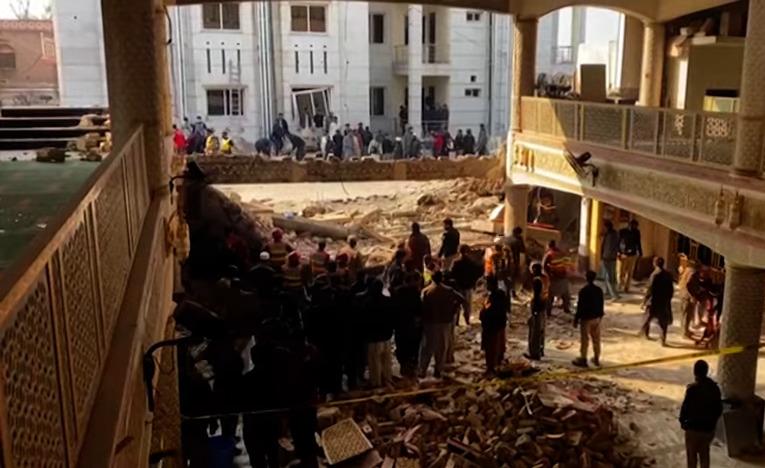Pakistan needs a comprehensive review of its counterterrorism strategies. The recent suicide bombing at a mosque in Pakistan’s Khyber Pakhtunkhwa province near the border with Afghanistan has left at least 100 people dead and over 225 injured. The Tehreek-e-Taliban Pakistan (TTP) initially claimed responsibility for the attack, but later refuted the allegations.
The attack highlights the need for a comprehensive review of Pakistan’s counterterrorism strategies, but with rising socio-economic instability and political polarization, it is uncertain if the country’s leaders will be able to tackle the growing security challenges. The TTP has escalated its targeting of police and law enforcement officials in recent months and is believed to have carried out close to 100 attacks since November. The group has benefited from safe havens in Afghanistan, which it views as a tool against the Pakistani state. Pakistan’s government has resorted to a combination of negotiations and covert operations in Afghanistan to counter the TTP, but these efforts have been largely unsuccessful.
The political crisis in Pakistan is compounded by an economic one, with the country’s foreign exchange reserves at their lowest since 2014 and power outages affecting the economy. Pakistan urgently needs support from the international community to address its multiple crises and tackle terrorism.
Pakistan is facing multiple Crises
Pakistan is facing multiple crises that include security, political and economic challenges, all of which are interrelated and are contributing to the instability of the country. The recent suicide bombing in Peshawar, one of the worst in recent years, has highlighted the need for a comprehensive review of the country’s counterterrorism strategies. However, with political polarisation, mounting socioeconomic instability, and a struggling economy, it is unclear if the country’s leaders will be able to effectively tackle its growing security challenges.
Terrorist Groups are expanding their Operational Activities
Terrorist groups such as the Tehreek-e-Taliban Pakistan (TTP) have been able to expand their operational activities and carry out frequent attacks, benefiting from havens in neighboring Afghanistan. Pakistan’s attempts to negotiate with the TTP or carry out covert operations have not produced long-term results, and the TTP continues to hold fast to its goal of imposing its strict interpretation of Islamic law across the country.
Pakistan’s political crisis, compounded by its economic crisis, has only added to the existing socio-political and ethnic fault lines, which the TTP and other militant groups are exploiting to gain recruits and demonstrate the government’s weaknesses. This could lead to heightened political violence in the upcoming provincial and national elections. The country’s economy is also struggling, with low foreign exchange reserves and frequent power outages. Talks with the International Monetary Fund for a loan have stalled, adding further uncertainty to the already fragile economy.
Pakistan is facing multiple challenges that require a comprehensive approach to address its security, political, and economic issues. Whether the country’s leaders will be able to effectively tackle these challenges remains to be seen.


